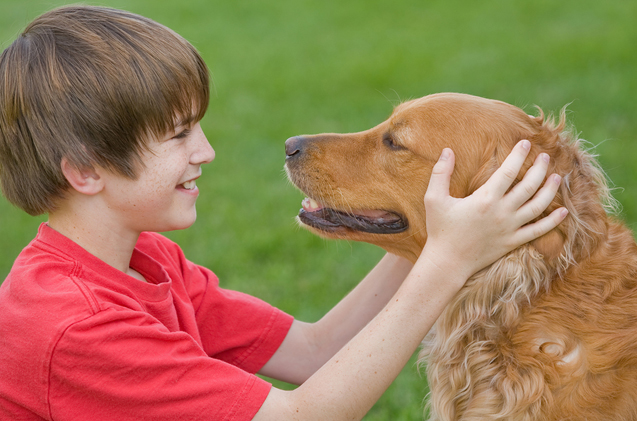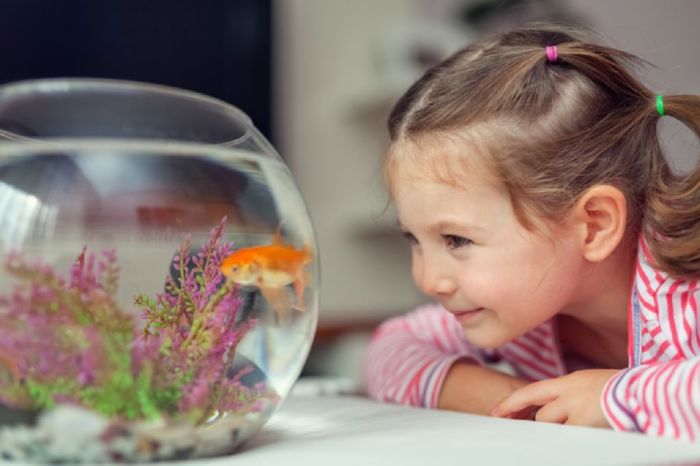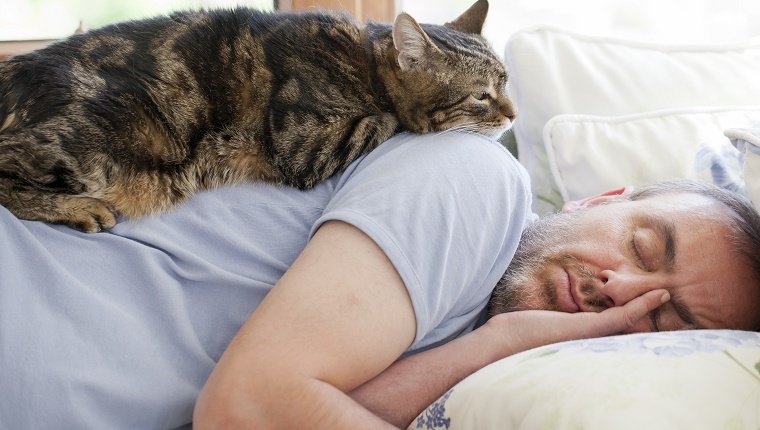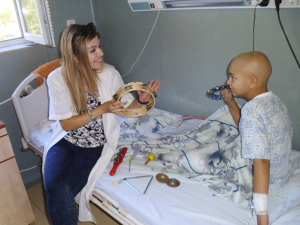
ARTON PROGRAM - The therapeutic power of the group
Creative projects involving group work - general musical performance or group painting, collage, sculpture - are useful in helping to explore and strengthen social...

Most pet owners are clear about the immediate joys that come with sharing their lives with companion animals. However, many of us remain unaware of the physical and mental health benefits that can also accompany the pleasure of snuggling up to a furry friend. It’s only recently that studies have begun to scientifically explore the benefits of the human-animal bond.
Pets have evolved to become acutely attuned to humans and our behavior and emotions. Dogs, for example, are able to understand many of the words we use, but they’re even better at interpreting our tone of voice, body language, and gestures. And like any good human friend, a loyal dog will look into your eyes to gauge your emotional state and try to understand what you’re thinking and feeling (and to work out when the next walk or treat might be coming, of course).
Pets, especially dogs and cats, can reduce stress, anxiety, and depression, ease loneliness, encourage exercise and playfulness, and even improve your cardiovascular health. Caring for an animal can help children grow up more secure and active. Pets also provide valuable companionship for older adults. Perhaps most importantly, though, a pet can add real joy and unconditional love to your life.
While people with pets often experience the greatest health benefits, a pet doesn’t necessarily have to be a dog or a cat. Even watching fish in an aquarium can help reduce muscle tension and lower pulse rate.
Studies have shown that:
One of the reasons for these therapeutic effects is that pets fulfill the basic human need for touch. Even hardened criminals in prison show long-term changes in their behavior after interacting with pets, many of them experiencing mutual affection for the first time. Stroking, hugging, or otherwise touching a loving animal can rapidly calm and soothe you when you’re stressed or anxious. The companionship of a pet can also ease loneliness, and most dogs are a great stimulus for healthy exercise, which can substantially boost your mood and ease depression.
Adopting healthy lifestyle changes plays an important role in easing symptoms of depression, anxiety, stress, bipolar disorder, and PTSD. Caring for a pet can help you make healthy lifestyle changes by:
.jpg)
Increasing exercise. Taking a dog for a walk, hike, or run are fun and rewarding ways to fit healthy daily exercise into your schedule. Studies have shown that dog owners are far more likely to meet their daily exercise requirements—and exercising every day is great for the animal as well. It will deepen the connection between you, eradicate most behavior problems in dogs, and keep your pet fit and healthy.
Providing companionship. Companionship can help prevent illness and even add years to your life, while isolation and loneliness can trigger symptoms of depression. Caring for a live animal can help make you feel needed and wanted, and take the focus away from your problems, especially if you live alone. Most dog and cat owners talk to their pets, some even use them to work through their troubles. And nothing beats loneliness like coming home to a wagging tail or purring cat.
Helping you meet new people. Pets can be a great social lubricant for their owners, helping you start and maintain new friendships. Dog owners frequently stop and talk to each other on walks, hikes, or in a dog park. Pet owners also meet new people in pet stores, clubs, and training classes.
Reducing anxiety. The companionship of an animal can offer comfort, help ease anxiety, and build self-confidence for people anxious about going out into the world. Because pets tend to live in the moment—they don’t worry about what happened yesterday or what might happen tomorrow—they can help you become more mindful and appreciate the joy of the present.
Adding structure and routine to your day. Many pets, especially dogs, require a regular feeding and exercise schedule. Having a consistent routine keeps an animal balanced and calm—and it can work for you, too. No matter your mood—depressed, anxious, or stressed—one plaintive look from your pet and you’ll have to get out of bed to feed, exercise, and care for them.
Providing sensory stress relief. Touch and movement are two healthy ways to quickly manage stress. Stroking a dog, cat, or other animal can lower blood pressure and help you quickly feel calmer and less stressed.

The health benefits of pets are not limited to just cats and dogs. If you’re thinking of getting a household pet, here are some less common options:
Snakes and lizards. You may think that reptiles seem cold, but studies show that lizards and snakes can grow attached to their owners, recognizing those who care, handle, and feed them. Some may even ask to be petted by raising their necks up. A reptilian companion might also appeal to those who have an allergy to furry pets or find their exotic, unusual beauty attractive.
Rabbits. Another alternative for those who are allergic to dogs or cats is a bunny rabbit. A rabbit can be an exceptional family pet, not as high maintenance as dogs or cats, but with lots of energy and personality. They don’t require a lot of space—a minimum of 4 x 4 feet of living space with opportunity to roam wider each day. If you live in an apartment, a rabbit could be the perfect option. Owning a rabbit can help reduce levels of the stress hormone cortisol, and increase serotonin (“happy hormone”) levels in your brain. Petting or snuggling a furry friend can also help lower blood pressure.
Birds. Companion birds have very long lifespans; some parrot species can even outlive humans. Owning a bird means you can enjoy all the love without having to deal with the grief that comes with losing your pet. Birds also encourage social interaction, which can be beneficial if you live alone, or are elderly and want to keep your mind sharp. Talking and teaching tricks to your bird can promote healthy cognitive function.
Fish. You might have noticed fish tanks in many doctors’ or dentists’ offices, care homes, or other medical facilities. There’s a good reason for this. Keeping and watching fish have been scientifically proven to reduce stress and calm your heart rate.

As well as providing vital companionship, owning a pet can play an important role in healthy aging by helping you to:
Find meaning and joy in life. As you age, you’ll lose things that previously occupied your time and gave your life purpose. You may retire from your career or your children may move far away. Caring for a pet can bring pleasure and help boost your morale, optimism, and sense of self-worth. Choosing to adopt a pet from a shelter, especially an older pet, can add to your sense of fulfillment, knowing that you’ve provided a home to a pet that may otherwise have been euthanized.
Stay connected. Maintaining a social network isn’t always easy as you grow older. Retirement, illness, death, and relocation can take away close friends and family members. And making new friends can get harder. Pets, especially dogs, are a great way for older adults to spark up conversations and meet new people.
Boost your vitality. You can overcome many of the physical challenges associated with aging by taking good care of yourself. Dogs and cats encourage playfulness, laughter, and exercise, which can help boost your immune system and increase your energy.

As part of the disease, Alzheimer’s patients may exhibit a variety of behavioral problems, many related to an inability to deal with stress.
Not only do children who grow up with pets have less risk of allergies and asthma, many also learn responsibility, compassion, and empathy from having a dog or cat.
Children and adults alike can benefit from playing with pets, which can provide a source of calmness and relaxation, as well as a source of stimulation for the brain and body. Playing with a pet can even be a doorway to learning for a child. It can stimulate a child’s imagination and curiosity. The rewards of training a dog to perform a new trick, for example, can teach kids the importance of perseverance. Caring for a furry friend can also offer another benefit to a child: immense joy.

Some children with autism or other learning difficulties are better able to interact with pets than people. Autistic children often rely on nonverbal cues to communicate, just as animals do. And learning to first connect with a pet may even help an autistic child in their interactions with people.
If you’ve decided that owning a pet is right for you, congratulations: you’re about to open your life to a unique and rewarding relationship. While people who have pets tend to be happier, more independent, and feel more secure than those without pets, it’s important to select the type of pet that best suits your needs and lifestyle.
Talk to other members of your household and agree on the qualities you want in a pet and those that you’d prefer to avoid. In the case of dogs, man’s best friend comes in countless breeds or mix of breeds, each offering a different blend of personality traits.

If you’re looking for something smaller or with less energy, then maybe a rabbit is right for you and your family. Here are some things to ask yourself when looking for the perfect pet:
Authors: Kai Lundgren, Lawrence Robinson, and Robert Segal, M.A.

Creative projects involving group work - general musical performance or group painting, collage, sculpture - are useful in helping to explore and strengthen social...

In the ARTON Program our team of oncopsychologists, art therapists and music therapists develops the process of children's creativity as a process of...

In ARTON sessions, creating a piece of music or a song is an emotional experience of coping and satisfaction for the participating children. They make friends with...

Painting provides patients with a spontaneous, plastic method of depicting thoughts and experiences. Painting with paints is not as structured as with pencil or...










